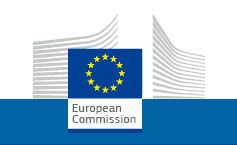Today, the College of Commissioners approved the political agreement reached and has mandated Vice-President Ansip and Commissioner Jourová to prepare the necessary steps to put in place the new arrangement. This new framework will protect the fundamental rights of Europeans where their data is transferred to the United States and ensure legal certainty for businesses.
The EU-US Privacy Shield reflects the requirements set out by the European Court of Justice in its ruling on 6 October 2015, which declared the old Safe Harbour framework invalid. The new arrangement will provide stronger obligations on companies in the U.S. to protect the personal data of Europeans and stronger monitoring and enforcement by the U.S. Department of Commerce and Federal Trade Commission (FTC), including through increased cooperation with European Data Protection Authorities. The new arrangement includes commitments by the U.S. that possibilities under U.S. law for public authorities to access personal data transferred under the new arrangement will be subject to clear conditions, limitations and oversight, preventing generalised access. Europeans will have the possibility to raise any enquiry or complaint in this context with a dedicated new Ombudsperson.
Vice-President Ansip said: "We have agreed on a new strong framework on data flows with the US. Our people can be sure that their personal data is fully protected. Our businesses, especially the smallest ones, have the legal certainty they need to develop their activities across the Atlantic. We have a duty to check and we will closely monitor the new arrangement to make sure it keeps delivering. Today's decision helps us build a Digital Single Market in the EU, a trusted and dynamic online environment; it further strengthens our close partnership with the US. We will work now to put it in place as soon as possible."
Commissioner Jourová said: "The new EU-US Privacy Shield will protect the fundamental rights of Europeans when their personal data is transferred to U.S. companies. For the first time ever, the United States has given the EU binding assurances that the access of public authorities for national security purposes will be subject to clear limitations, safeguards and oversight mechanisms. Also for the first time, EU citizens will benefit from redress mechanisms in this area. In the context of the negotiations for this agreement, the US has assured that it does not conduct mass or indiscriminate surveillance of Europeans. We have established an annual joint review in order to closely monitor the implementation of these commitments."
The new arrangement will include the following elements:
- Strong obligations on companies handling Europeans' personal data and robust enforcement:U.S. companies wishing to import personal data from Europe will need to commit to robust obligations on how personal data is processed and individual rights are guaranteed. The Department of Commerce will monitor that companies publish their commitments, which makes them enforceable under U.S. law by the US. Federal Trade Commission. In addition, any company handling human resources data from Europe has to commit to comply with decisions by European DPAs.
- Clear safeguards and transparency obligations on U.S. government access: For the first time, the US has given the EU written assurances that the access of public authorities for law enforcement and national security will be subject to clear limitations, safeguards and oversight mechanisms. These exceptions must be used only to the extent necessary and proportionate. The U.S. has ruled out indiscriminate mass surveillance on the personal data transferred to the US under the new arrangement. To regularly monitor the functioning of the arrangement there will be an annual joint review, which will also include the issue of national security access. The European Commission and the U.S. Department of Commerce will conduct the review and invite national intelligence experts from the U.S. and European Data Protection Authorities to it.
- Effective protection of EU citizens' rights with several redress possibilities: Any citizen who considers that their data has been misused under the new arrangement will have several redress possibilities. Companies have deadlines to reply to complaints. European DPAs can refer complaints to the Department of Commerce and the Federal Trade Commission. In addition, Alternative Dispute resolution will be free of charge. For complaints on possible access by national intelligence authorities, a new Ombudsperson will be created.
Next steps
The College has today mandated Vice-President Ansip and Commissioner Jourová to prepare a draft "adequacy decision" in the coming weeks, which could then be adopted by the College after obtaining the advice of the Article 29 Working Party and after consulting a committee composed of representatives of the Member States. In the meantime, the U.S. side will make the necessary preparations to put in place the new framework, monitoring mechanisms and new Ombudsman.
Background
On 6 October, the Court of Justice declared in the Schrems case that Commission’s Decision on the Safe Harbour arrangement was invalid. The judgment confirmed the Commission's approach since November 2013 to review the Safe Harbour arrangement, to ensure in practice a sufficient level of data protection as required by EU law.
On 15 October, Vice-President Ansip, Commissioners Oettinger and Jourová met business and industry representatives who asked for a clear and uniform interpretation of the ruling, as well as more clarity on the instruments they could use to transfer data.
On 16 October, the 28 national data protection authorities (Article 29 Working Party) issued a statement on the consequences of the judgment.
On 6 November, the Commission issued guidance for companies on the possibilities of transatlantic data transfers following the ruling until a new framework is put in place.
On 2 December, the College of Commissioners discussed the progress of the negotiations. Commissioner Jourová received a mandate to pursue the negotiations on a renewed and safe framework with the US.
Source: http://europa.eu/rapid/press-release_IP-16-216_en.htm

